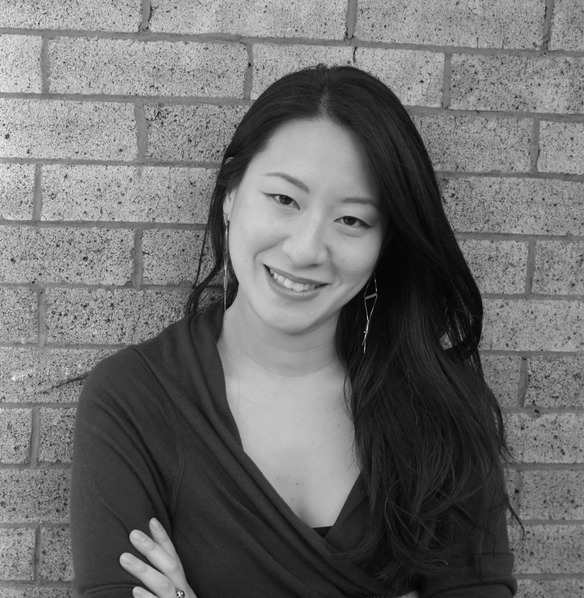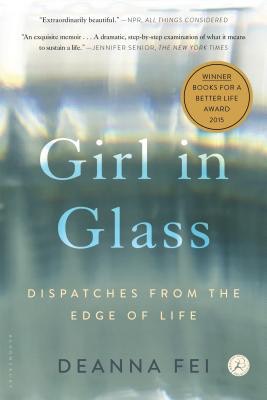
On premature births, mothers in the workplace, Asian American identity, writing and rejection, independence versus romance, and more, originally published in the New York Times, TIME, Slate, Salon, The Millions, and elsewhere.
Book Notes: The Music Playlist for GIRL IN GLASS / December 2015
The humming of monitors, the gurgling of ventilators, the nurses' muted bustle and chatter, the doctors' clipped cadences. Beeping, always something beeping: a loose connection, a missed heartbeat, a suspended breath. This is the soundtrack of what's known as "the gray zone": the very edge of life.
Amazon Isn’t the Problem. We Are. / August 2015
Any data-obsessed CEO might be tempted to slap a price tag on the financial liability represented by a female employee who needs extra time to cope with a stillbirth or to care for a special-needs baby. But the true costs of a system in which such women risk getting pushed out of the workforce are immeasurably greater.
What You Never Expect When You’re Expecting / August 2015
My daughter’s premature birth upended everything I thought I knew about how life is supposed to begin: the triumphal perfection, the quintessential and ordinary miracle in the birth of a healthy baby. But it also taught me about motherhood at its most elemental.
I Wondered if My Premature Daughter Wasn’t Meant to Live / August 2015
I never imagined that her story would go viral. I never expected to hear from strangers around the world telling me that my child was their child, too. That she is all of our children.
My Baby and AOL’s Bottom Line / February 2014
Late last week, Tim Armstrong, the chief executive officer of AOL, landed himself in a media firestorm when he held a town hall with employees to explain why he was paring their retirement benefits. After initially blaming Obamacare for driving up the company’s health care costs, he pointed the finger at an unlikely target: babies.
Specifically, my baby.
To Keep but Not Be Kept / September 2011
ONE balmy evening in Shanghai, my boyfriend and I were strolling home from dinner when two boozy blond men called to us. Expecting a plea for directions, we stopped. The men leered at me and grinned at my boyfriend.
“Where’s the party?” they asked jovially. “You know, Chinese girls. Where can we get one of these?”
The Real Lesson of "Linsanity" / February 2012
Our son, like too many Asian males before him, would be born into a world where "Asian" was still wielded as an insult -- and as a synonym for being the opposite of a man.
Battle Plan of a Tiger Daughter—and Mother-to-Be / May 2011
On the same day that Amy Chua's Battle Hymn of the Tiger Mother went viral, I learned I was pregnant with my first child. And while talk shows, op-ed pages, parenting blogs, email inboxes, and Facebook and Twitter feeds across the nation began to flood with outraged invocations of damaged self-esteem, elevated suicide rates, Asian automatons, "Yellow Peril," and even child abuse, I stayed in bed reading Chua's story, feeling strangely sentimental.
It wasn't just my hormones.
Seven Books on Writing for Every Writer / March 2011
A few years ago, a draft of my first novel received a sweeping round of rejections, all complimentary yet unyielding, a devastating combination. After that, I could no longer look at the document titled "novel" that I'd virtually lived inside for three years. I couldn't imagine writing again without getting a sick feeling in the pit of my stomach.
I couldn't talk about writing without invoking the ultimate futility of life. And, for the first time I could remember, no work of fiction gave me solace. I'm not proud of this, but every time I picked up a novel, all I could contemplate was the plain fact that it was what my own wasn't: published.
My Grandmother, the Chinese Censor / June 2010
Every novelist must tune out certain voices in order to write: withering critiques from weary instructors, rejection letters from unmoved editors, eager inquiries from airplane seatmates about how one compares to Dan Brown or Stephenie Meyer. For me, during the writing of my first novel, my grandmother’s voice was the loudest. It came to represent hundreds of voices questioning my identity, my agenda, my right to say anything at all about the country where my story took place: that oft-analyzed land of my ancestors, China.
I Called Amy Tan a Dirty Word—and Then She Friended Me / June 2010
The day that a review of my first novel ran in the New York Times, I received a Facebook friend request from Amy Tan. It seemed she was welcoming me into the club--of novelists, Chinese American novelists, Chinese American female novelists reviewed in the Times. I was about to eagerly accept when I remembered that during my first radio interview a few days earlier--an interview I'd posted to my website, Twitter, andFacebook--I'd called her a dirty word.
A Different Species: A Chinese American Writer in China / April 2010
When I first moved to China to research and write my first novel, I never knew what to say when people asked how I was doing. The truth seemed weak and unwriterly: I was lonely and I wanted to go home.
Other Writings:
- 2010-2011 author blog
- the "Book Notes" playlist for A Thread of Sky, at Largehearted Boy
- op-ed on Jeremy Lin and ESPN's "Chink" headline, at the Daily News
- tips on applying for a Fulbright Grant
- dispatches at BrooklyntheBorough.com
- short story, "Born Again," at Five Chapters

